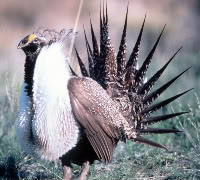Renewables and Natural Ecosystems


The idea of collecting solar energy from the upper surfaces of already constructed buildings seems like the least intrusive and most efficient method to utilized light, in my opinion. It doesn’t shade the natural ecosystem and collects/distributes the energy where humans need it.
This is true. A few additional comments:
Obviously, the migration to renewables will be a blend of public and private projects. It’s good to see solar installations on a piecemeal basis on residential and commercial buildings. But clearly we need a real game-changer, and that has to happen at the utility level. And here, PV is one of many competing alternative energy technologies. As I’ve written often, I advocate large solar thermal farms in the southwestern deserts.
This brings me to my other point: the natural ecosystem. With very few (perhaps no) exceptions, generating renewable energy comes at the price of some level of violence to the local environment. In my conversation with Brian Rutledge of the Audubon Society, I ignored this; I made the mistake of referring to proposed solar thermal sites as “desert wastelands,” and Brian broke in: “They’re deserts, but they’re not wastelands,” he pointed out. Good point; I stand corrected.
I nevertheless contend that paying a certain well-defined ecological price for turning off fossil fuel and nuclear plants is a deal that we simply must make without shame or compunction. If we’re speeding the extinction of a rare desert lizard in the process of reverting the rise of greenhouse gasses and the terrible consequences to every species on earth that are very probably tied to this phenomenon, it strikes me as the bargain of the century.
I’m not sure how anyone could object to this. The only proviso here, I would think, would be that that such decisions be made on a fair and measured basis. We need to study the issue carefully and pull the trigger only when we’re sure we’re doing the least possble damage.
